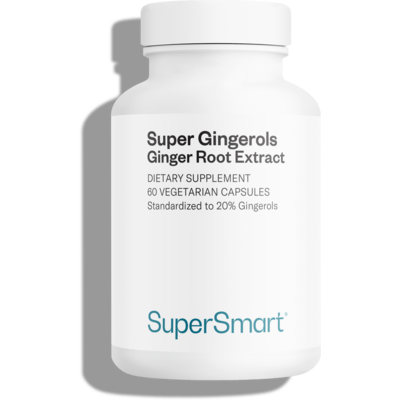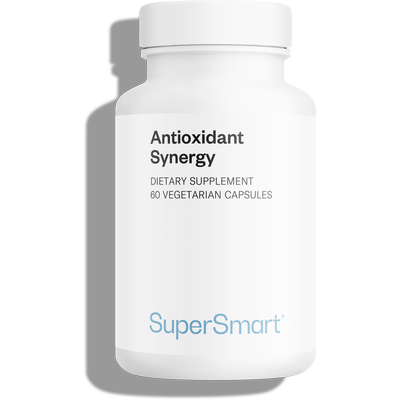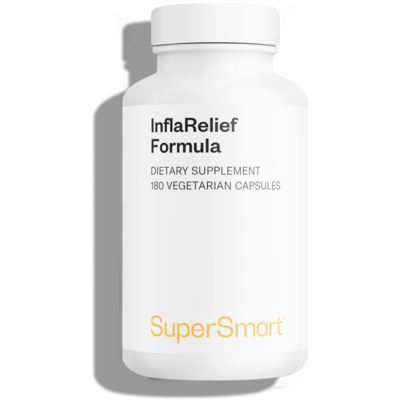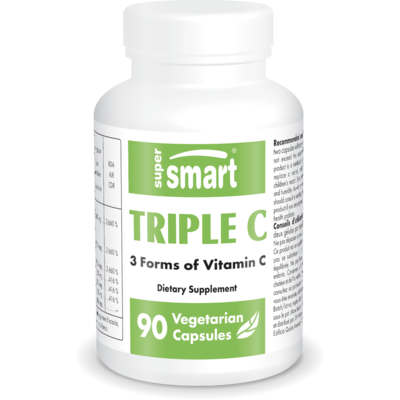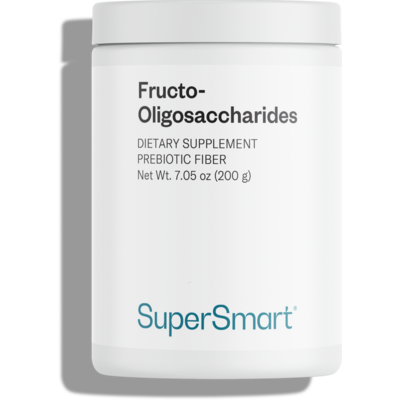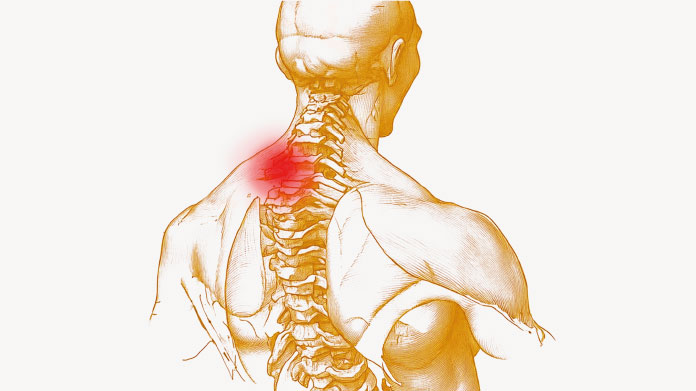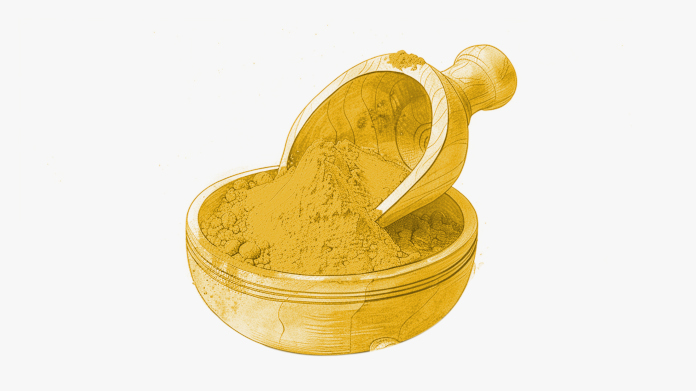Anti-inflammatory diet: which foods should you eat?
Adopting an anti-inflammatory diet brings multiple health benefits. Discover which foods to prioritise and which to avoid to reduce your inflammation.

What exactly is an anti-inflammatory diet?
An anti-inflammatory diet is an eating plan designed to reduce chronic inflammation in the body.
As a reminder, inflammationis a healthy, natural response that helps the body defend itself against attack. It only becomes a problem when it persists and starts to damage healthy cells (this is called chronic inflammation or a proinflammatory state).
A lack of exercise, high stress levels and poor dietary habits can all trigger low levels of permanent inflammation in the body. Referred to as ‘meta-inflammation’, this can pave the way for chronic conditions such as cardiovascular disease (1).
What health benefits are provided by an anti-inflammatory diet?
Adopting an anti-inflammatory diet offers numerous benefits for health:
Reduction in inflammation
By reducing chronic inflammation, you relieve joint pain and lower the risk of developing inflammatory conditions (cartilage, skin, and respiratory tract problems …) (2).
Strengthening of the immune system
High in vitamins, minerals and antioxidants, this diet stimulates your immune system, improving your defences against infection (3).
Improvement in cardiac health
Many ‘anti-inflammatory’ foods are also known to benefit cardiovascular health. They reduce cholesterol levels, lower blood pressure and protect against heart disease.
It’s also now well-documented that reducing your consumption of inflammatory foods is an effective strategy for preventing cardiovascular disease (4).
Weight control
An anti-inflammatory diet involves eating natural foods and limiting processed ones, which are high in both saturated fats and added sugars. This is important for reducing inflammation, as well as for preventing obesity and maintaining a healthy weight (5).
Mental well-being
An anti-inflammatory diet can also have an impact on mental well-being. By providing the brain with essential nutrients, it helps to improve mood and reduce symptoms of depression (6).
Which foods should you focus on in an anti-inflammatory diet?
Certain foods are particularly good at helping to reduce inflammation and should therefore feature in a diet of this type.
Berries, powerful antioxidants
Blueberries, strawberries, cranberries and raspberries are all fruits packed with antioxidants. These compounds protect cells against damage caused by oxidative stress, a major factor in inflammation.
Berries also have a low glycaemic index (GI). This means they will not cause a spike in blood sugar levels, elevated glycaemia being another pro-inflammatory factor.
To get the most from berries’ benefits, eat them raw as a snack. They can also be added to smoothies or your breakfast cereal.
Leafy green vegetables, invaluable nutritious aids
Leafy green vegetables and certain legumes are high in vitamins, minerals and antioxidants. They are also excellent sources of fibre, and thus help maintain a healthy gut microbiota, as well as reducing chronic inflammation.
Rocket, kale and spinach can all be consumed in soups and salads to increase your intake of essential nutrients. Add a little olive oil and you have the perfect combo!
Citrus fruit, for vitamin C and bioflavonoids
Lemons, oranges and grapefruit are all health-beneficial citrus fruits rich in vitamin C and bioflavonoids, substances with recognised anti-inflammatory effects.
Oily fish, rich in omega-3
Oily fish such as salmon, mackerel and sardines are rich in omega-3, unsaturated fatty acids known for their anti-inflammatory properties.
As well as reducing inflammation, these compounds support good cardiac, visual and brain health. Try to include oily fish in your anti-inflammatory diet at least twice a week.
Oleaginous fruits, a source of healthy fats
Nuts and seeds contain high levels of unsaturated fatty acids, fibre and antioxidants. They are thus excellent for reducing inflammation and providing the body with essential nutrients.
Good options are almonds, cashew nuts and hazelnuts, perfect for including in an anti-inflammatory breakfast. Add them to salads, cereals or yogurt to benefit from their nutrients.
Anti-inflammatory spices
Good news for fans of spicy dishes: certain spices used by most home cooks have anti-inflammatory properties.
One such spice is turmeric, the active ingredient of which, curcumin, is a powerful antioxidant and natural anti-inflammatory(7). The same goes for the gingerols in ginger (8).
Note: as turmeric is poorly absorbed by the gut, you may want to take a dietary supplement specially formulated to offer a better rate of absorption (such as Super Curcuma).
What are the inflammatory foods to avoid?
As part of an anti-inflammatory diet, it’s best to avoid, or at least reduce, your consumption of proinflammatory foods. This also goes for certain drinks including alcohol.
Processed foods
Processed foods include ready-meals, mass-produced snacks and sugary drinks. Though convenient, their composition can contribute to inflammation.
Such products are high in saturated fats, chemical additives and added sugars. Much better to focus on fresh, natural ingredients!
Red meat (should be consumed in moderation)
Red meat such as beef and lamb are often high in saturated fats. That’s why eating excessive amounts can increase inflammation (9).
If you can’t give red meat up altogether, then limit your intake to a few servings a week.
Dairy products, inflammatory foods to avoid?
Dairy products high in saturated fats also contribute to inflammation. By all means eat dairy foods, but choose low-fat options. Skimmed milk, low-fat yogurts and hard cheeses are better choices for an anti-inflammatory diet.
Which supplements can help restore inner equilibrium?
Are you keen to boost the effects of your diet and restore your inner balance? If so, you have the option of complementing your anti-inflammatory diet with a specially-formulated dietary supplement.
InflaRelief Formula is a formulation with broad-spectrum activity which contains 12 totally natural ingredients, carefully selected to produce synergistic effects.
This combination of thebest anti-inflammatory substances includes extracts of turmeric, ginger and nettle, bromelain, quercetin, rutin and ‘cat’s claw’.
SuperSmart ADVICE
References
- Roth G.A., Abate D., Abate K.H., et al. "Global, regional, and national age-sex-specific mortality for 282 causes of death in 195 countries and territories, 1980–2017: a systematic analysis for the Global Burden of Disease Study 2017". Lancet 2018;392:1736-1788.
- Schönenberger KA, Schüpfer AC, Gloy VL, Hasler P, Stanga Z, Kaegi-Braun N, Reber E. Effect of Anti-Inflammatory Diets on Pain in Rheumatoid Arthritis: A Systematic Review and Meta-Analysis. Nutrients. 2021 Nov 24;13(12):4221. doi: 10.3390/nu13124221. PMID: 34959772; PMCID: PMC8706441.
- Childs CE, Calder PC, Miles EA. Diet and Immune Function. Nutrients. 2019 Aug 16;11(8):1933. doi: 10.3390/nu11081933. PMID: 31426423; PMCID: PMC6723551.
- Li J, Lee DH, Hu J, Tabung FK, Li Y, Bhupathiraju SN, Rimm EB, Rexrode KM, Manson JE, Willett WC, Giovannucci EL, Hu FB. Dietary Inflammatory Potential and Risk of Cardiovascular Disease Among Men and Women in the U.S. J Am Coll Cardiol. 2020 Nov 10;76(19):2181-2193. doi: 10.1016/j.jacc.2020.09.535. PMID: 33153576; PMCID: PMC7745775.
- Jayarathne S, Koboziev I, Park OH, Oldewage-Theron W, Shen CL, Moustaid-Moussa N. Anti-Inflammatory and Anti-Obesity Properties of Food Bioactive Components: Effects on Adipose Tissue. Prev Nutr Food Sci. 2017 Dec;22(4):251-262. doi: 10.3746/pnf.2017.22.4.251. Epub 2017 Dec 31. PMID: 29333376; PMCID: PMC5758087.
- Marcus M, Yasamy MT, Ommeren MV, Chisholm D, Saxena S, Yasamy MT, et al. Depression: a global public health concern. WHO Department of mental health and substance abuse; 2012. p. 1–4.
- Hewlings SJ, Kalman DS. Curcumin: A Review of Its Effects on Human Health. Foods. 2017 Oct 22;6(10):92. doi: 10.3390/foods6100092. PMID: 29065496; PMCID: PMC5664031.
- Ballester P, Cerdá B, Arcusa R, Marhuenda J, Yamedjeu K, Zafrilla P. Effect of Ginger on Inflammatory Diseases. Molecules. 2022 Oct 25;27(21):7223. doi: 10.3390/molecules27217223. PMID: 36364048; PMCID: PMC9654013.
- Shiraseb F, Hosseininasab D, Mirzababaei A, Bagheri R, Wong A, Suzuki K, Mirzaei K. Red, white, and processed meat consumption related to inflammatory and metabolic biomarkers among overweight and obese women. Front Nutr. 2022 Nov 10;9:1015566. doi: 10.3389/fnut.2022.1015566. PMID: 36438769; PMCID: PMC9684714.
Keywords
1 Days
Quick shipping
Quick shipping; good price. No issues!
Mary McCarty
3 Days
Thr product is very good and is helping…
Thr product is very good and is helping me on my health. Then is always on time
LUGO Luz
5 Days
Buying was fine
Buying was fine. I had problems with the website not recognizing my login info, and had to call to get it fixed. Other than that, everything was good.
David S. Clark
6 Days
Your super maca and super ginseng are…phenomenal
Your super maca and super ginseng are phenomenal supplements that compliment each other when taking them together. Fantastic feeling of well-being and lots of mid day energy without the crash.
Keith Mason
8 Days
I have had amazing results with every…
I have had amazing results with every supplement I've purchased. I am extremely satisfied with this company
kirstin Torres
9 Days
Fine products
Fine products . They are on the leading edge of online supplements. The only issue -so far-is they sometime run out of subscription items.
Jason Argos
11 Days
The ordering process is very user…
The ordering process is very user friendly and the products always come in a timely manner.
CARTER Rhonda
12 Days
The price for Dr
The price for Dr. Pero's AC-11 is reasonable and in line with his views. (my former colleague). Keep it pure.
CAMPBELL Clayton
15 Days
Right on every time.
Right on every time.
Arthur Nicholas
18 Days
They are cheaper than everyone else and…
They are cheaper than everyone else and the shipping was fast. Great company.
Patricia Adams
25 Days
Availability of quality health…
Availability of quality health supplements and it's wide variety is impressive. Ordering is seamless and shipping even during the holidays is well streamlined.
Mohamad Hussein
39 Days
A Product worth waiting for when not…
A Product worth waiting for when not available and then arriving as a surprise!
DOMINIC
40 Days
On time shipping
On time shipping
GEORGE Verne
42 Days
Ordering was easy and the product was…
Ordering was easy and the product was delivered with no problems. Appreciated that I was notified when it would arrive. Thanks!
MascarC
48 Days
Great customer service - responsive …
I ordered from them and my item was unavailable for sometime. I was super happy when they reactivated my order and shipped my item which arrived very quickly. Great customer service.
Ruth Rueter

